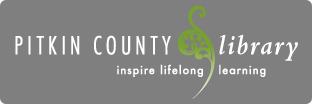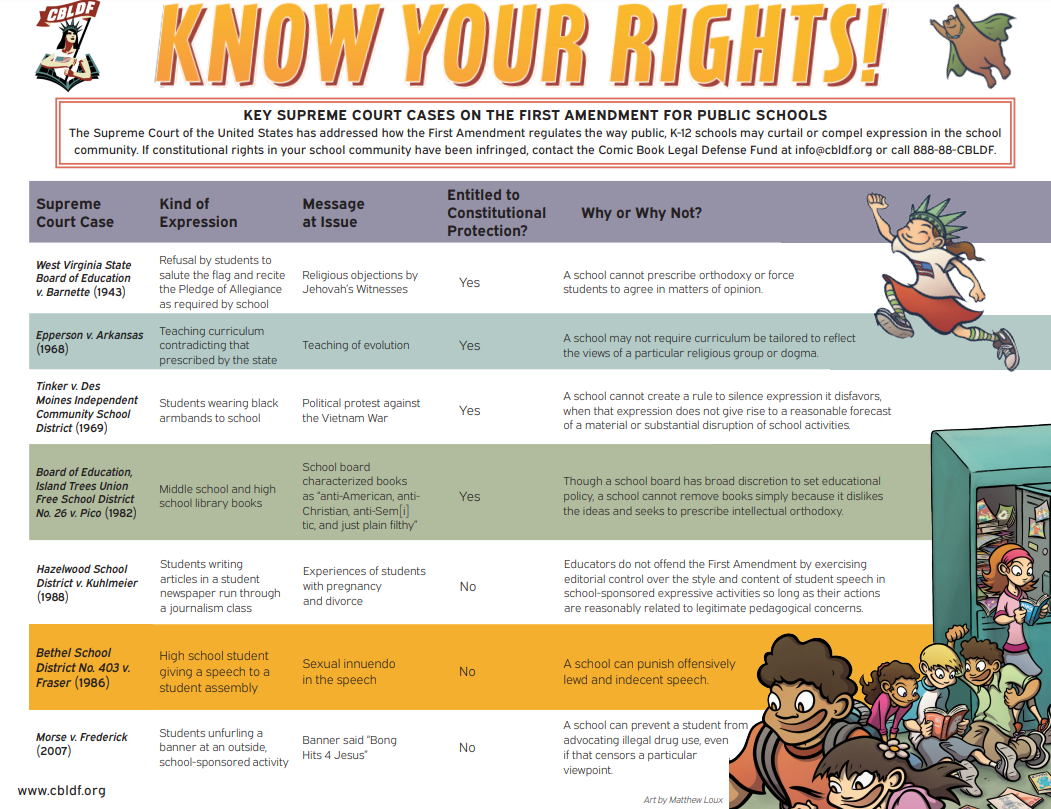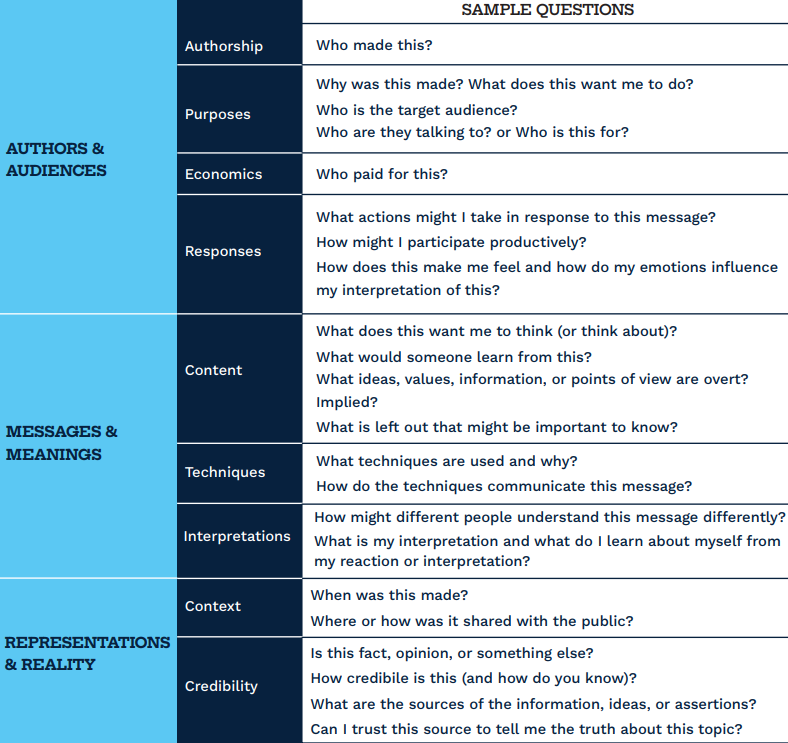Everyone, including teens and kids, has the right to information without restriction. Everyone, including teens and kids, has the right to express themselves and their ideas freely. At their core, libraries are here to uphold these values and provide individuals a safe environment to learn, create, and gather.
As the American Library Association states:
- Intellectual freedom is the right of every individual to both seek and receive information from all points of view without restriction. It provides free access to all expressions of ideas, through which any and all sides of a question, cause or movement may be explored.
- Intellectual freedom encompasses the freedom to hold, receive and disseminate ideas.
- Libraries are here to provide information and ideas, in a variety of formats, for people to explore themselves.
While we trust our community to be respectful and responsible citizens, libraries are making a greater effort to truly embrace equity, diversity, and inclusion. As this takes effect, libraries will not support practices, movements, and groups that oppose equity, diversity and inclusion. Read the full 2021 Resolution from the American Library Association to learn more.
Equal Access
Libraries are here to provide everyone, regardless of age, education, ethnicity, language, income, physical limitations or geographic barriers access to information and a safe environment in which to learn, create, and gather.
One of the core values of librarianship is to ensure that recorded knowledge and information, as well as library resources, are accessible to all despite any technological or monetary barriers. Libraries are here to help bridge the digital divide by providing equal access to information and materials, in a safe gathering space. Freedom and democracy can feel at home in such an environment.
Additionally, any attempts to restrict access to library materials and programs violate the basic tenets of the Library Bill of Rights. Read more about libraries commitment to equal access while serving an education and community institution from the ALA's Access to Library Resource and Services.
Censorship
"Censorship is the suppression of ideas and information that certain persons—individuals, groups or government officials—find objectionable or dangerous." - American Library Association
A censor can be a person, group, or people in government positions stating, "I object to this book, movie, or program so no one should be able to read it, view it, or participate." Censors will often push public and school libraries to remove material or cancel programs that are thought to be inappropriate or dangerous before others are able to form their own opinion. Censorship occurs when questionable materials or programs are removed from public access, or when materials are restricted from a certain audience.
It should be noted that "obscenity, child pornography, defamation, and 'fighting words’ or speech that incites immediate and imminent lawless action" are not protected by the First Amendment, and these types of expressions are censored by libraries.
Read Intellectual Freedom and Censorship Q&A to learn more about censorship.
Ban vs. Challenge
Challenge: an attempt to remove or restrict materials and/or programs, based upon the objections of a person or group.
Ban: the removal of those materials and/or programs.
Challenges and bans are not just a person expressing their opinion. They are an attempt to have the material or program removed from display or circulation from the library or school library.
(Information from Banned Book FAQ).
Banned Books Week
Banned Books Week occurs during the last week of September every year. Libraries acknowledge the history of censorship and highlight the bans and challenges that are currently taking place in the United States. Banned Books Week is a way to raise awareness in support of intellectual freedom.
These challenges to books tend to reveal our current society’s concerns and issues. View one of the ALA's Banned Books Week webpages to learn more.
Push the Limits! Join our Banned Books Book Club!
We encourage you to explore what intellectual freedom means, what your rights are as citizens and library members, and become more aware of the challenges to intellectual freedom and individual privacy that are occurring locally and across the country. If intellectual freedom is your new passion, get involved! If you are simply curious why a library item or program was challenged and/or banned, check it out!
To help you get started, join our Banned Books Book Club. For adults and teens.
First Amendment (Free Speech and Civil Liberties)
The First Amendment as described by the American Library Association:
- allows individuals to speak, publish, read and view what they wish, worship (or not worship) as they wish, associate with whomever they choose, and gather together to ask the government to make changes in the law or to correct the wrongs in society
- gives everyone residing in the United States the right to hear all sides of every issue and to make their own judgments about those issues without government interference or limitations
- gives everyone the right to receive information as the right to receive information is a corollary to the right to speak
- protects individuals and society from government attempts to suppress ideas and information, and to forbid government censorship of books, magazines, and newspapers as well as art, film, music and materials on the internet
- protects public institutions from having to compromise the ideals of free speech by establishing a framework that defines critical rights and responsibilities
- protects the freedom of speech, thought, and inquiry, and advocates respect for the right of others to do the same
Libraries uphold The First Amendment by providing equitable and equal access to information, materials, and gathering spaces, fighting bans and/or challenges to materials and programs, and protecting an individual’s right to privacy. For more information about The First Amendment and resources visit ALA's First Amendment and Censorship.
Civil Liberties
Civil liberties are included in First Amendment rights and intellectual freedom. Civil liberties encompass an individual's rights and responsibilities within their society and community. The word "civic" or "civil" (at its core), refers to citizenship and government. These terms define an individual's rights as a citizen and community member. It is important to know what your rights are, how to exercise them, and when they are being restricted.
Libraries are presumed to be information centers, a gathering place, and a space for creation and free thought. Libraries fight for intellectual freedom, protect an individual's right to privacy, and provide equal and equitable access to information.
Know Your First Amendment Rights (For Students)
As students it is important to know how your First Amendment rights work within the public school system. The graphic below shares prominent court cases, the results, and what it means for your freedom of expression as K-12 students. The Comic Book League of Defense Fund has more resources and information about First Amendment rights and censorship.
Media Literacy
"The ability to access, analyze, evaluate, create, and act using all forms of communication." -National Association for Media Literacy
Media literacy is the practice of using critical thinking skills to assess information, specifically information presented by various media outlets. Most people obtain their news in a variety of formats including network TV, newspapers, magazines, YouTube, and social media. To comprehend and digest all this information and news we come across day to day we must stop, question, and think. This is especially important to do before we share the information with others. As trusted institutions, libraries do their utmost to provide information that is reliable and includes all viewpoints.
If you are interested in participating in a media literacy education program or have additional questions, let us know through this form.
For educators: We have provided some downloadable resources at the bottom of the webpage to help you create classes or lesson plans for media literacy education. These resources are compiled by the Association of College and Research Libraries. The National Association for Media Literacy (NAMLE) is also dedicated to media literacy education. Visit the NAMLE website for more information and resources.
Disinformation vs. Misinformation
Disinformation: the creation and spreading of false information with the intent to deceive.
Misinformation: the creation and spreading of false or inaccurate information without malicious intent.
(Definitions provided by Media Literacy in the Library: A Guide for Library Practitioners)
The spread of disinformation and/or misinformation can have disastrous results. As the ALA and Institute of Museum and Library Services states, "combined, mis/disinformation can have an alarming impact on public opinion, our trust of the media, and our understanding of democracy".
An important part of understanding how disinformation and misinformation became so widespread is acknowledging that there are roots of truth in disinformation and misinformation. Many individuals unconsciously partake in misinformation sharing and mean no harm in spreading the false information. With advances in digital media, it is becoming more and more difficult to discern reliable information from misinformation. It is essential to use your media literacy skills to stop the spread of dis/misinformation.
How to fight the spread of disinformation
There are a number of ways to help stop the spread of disinformation. The first step starts with the individual. Ask yourself:
These questions jumpstart critical thinking skills, which is an important part of media literacy. Another way to exercise these critical thinking skills is to SIFT.
- S: Stop and think. Be aware of your own emotional response and cognitive biases in response to the information. Also, consider what you already know about the topic and the source.
- I: Investigate the Source. Take time and investigate the author and medium publishing the information. What can you find about them? Do they have vested interests? Do they have authority in the area?
- F: Find Better (or other) Coverage. See if you can find other sources corroborating the same information.
- T: Trace Back Claims. When an article references a quote from an expert, or results of a research study, it is good practice to attempt to locate the original source of the information whenever possible.
(SIFT created by Association of College and Research Libraries, Keeping Up with Media Literacy)
For some fun tips on how to stop the spread of disinformation, watch these short videos from popular celebrities. While they focus on the spread of misinformation regarding COVID-19 in 2020, the tips on exercising media literacy skills are important and helpful.
Privacy
The right to privacy is essential for intellectual freedom. Individuals should be able to access ideas and information without fear of embarrassment, judgement, punishment, or ostracism. The American Library Association states, "True liberty of choice in the library requires both a varied selection of materials and the assurance that one's choices are not monitored."
Libraries uphold an individual's right to privacy by protecting their personal information, internet history, and library material use information. Library staff cannot reveal what book an individual has checked out to another individual.
Libraries are here to provide access to information, not monitor it. For more detailed information on privacy, view the ALA's Privacy webpage.
What are your privacy rights?
As individual members of the library you have a right to:
- be free from any unreasonable intrusion or surveillance.
- have your personally identifiable information and library-use data protected and kept private and confidential by anyone with access to that information.
- privacy regardless of age, ability, housing status, immigration status, involvement with the criminal justice system, religious affiliation, ethnicity, sexual orientation, gender identity, or other forms of identity or status.
Libraries do not give out personal information unless explicitly required by law and are required to consult with legal counsel before providing any personal information including identification information, internet history, and library material use information.
Additionally, Pitkin County Library staff will not reveal an individual's location to others. If a person were to call in asking if an individual is in the library, staff will not provide that information.
Privacy Rights For Children and Teens
Libraries recognize a child's and teen's right to privacy. As a child and teen, libraries will protect your personal information and library material use information (what books, movies, or other materials you check out). This information will be kept from parents or guardians unless the child or teen has given their parent or guardian access to their library card number.
Additionally, Pitkin County Library staff will not reveal a child's or teen's location to others, including parents who call to ask if their child is at the library. This is for the safety of the child and/or teen, as well as to protect their right to privacy.
It should be noted that libraries must comply with the Children's Internet Protection Act (CIPA). To do so, most libraries have specific computers for children and teens and/or specific library cards that help to block or filter certain material from being accessed through the internet. Learn more about CIPA and how it applies to libraries from this CIPA Q&A.
It is important as a parent, guardian, child, and teen to know your library's policy regarding children and teen privacy. View Pitkin County Library's policy on privacy for adults, teens, and kids below.
Cybersecurity
The American Library Association views cybersecurity and security as essential in protecting an individual's right to privacy. Cybersecurity refers to "activities, practices, and technology that keep computers, networks, programs, and data secure and protected from harmful activities such as unauthorized access, modification, or damage" (definition from Association of College and Research Libraries, Keeping Up with Cybersecurity, Usability, and Privacy).
While cybersecurity is important for keeping your information safe online, some cybersecurity measures can invade an individual's right to privacy. For example, the USA PATRIOT Act pushed to give law enforcement access to an individual's personal information through the library. Libraries will cooperate with law enforcement when presented with a lawful court order, but not before one is issued. Libraries will continue to do their best to use cybersecurity to protect the right to privacy and not invade an individual's right to privacy.
For more information on the USA PATRIOT Act and its relationship to libraries visit the ALA's USA PATRIOT Act webpage and/or the ALA's Washington's Office USA PATRIOT Act webpage. To learn more about cybersecurity at the library visit ALA Cybersecurity and/or Association of College and Research Libraries, Keeping Up with Cybersecurity, Usability, and Privacy.
Pitkin County Library Policy on Privacy
At Pitkin County Library and in most Colorado libraries, the following types of library information are considered confidential:
- Circulation records
- Reference questions
- Database search records
(including “preferred searches”) - Personal information
(address, phone number, etc) - Interlibrary loan transactions
- Use of materials, equipment, and facilities (e.g., meeting/study rooms)
- Financial information (e.g., fines for lost or damaged books)
- Acquisitions Requests
The following types of library information are NOT considered confidential:
- Information overheard by persons not employed or volunteering at the Pitkin County Library.
- Information about overdue or billed books that are accruing fines to the adult that is financially responsible for the juvenile's account (needed for library operations).
(Based off of Colorado Privacy Law, available for download at the bottom of the webpage.)
At Pitkin County Library, you will need your library card or the library card number to access any information about the library card’s account, and check out and/or pick up holds. If you do not have your library card or library card number we can provide it with proof of a photo ID (this can be a driver's license, passport, ski pass, bus pass, or student ID). We can also replace your library card with proof of a photo ID.
If you do not have your library card, library card number, or photo ID, you can renew items, place holds or pay fines. However, without some form of identification, library staff cannot give out personal information, title information on materials that are checked out, or checkout items.
If you are a parent or guardian of a minor without your child’s or teen's library card or library card number, you are able to renew items, place holds or pay fines. However library staff cannot give out personal information, title information on materials that are checked out, or checkout items.
While some of our privacy policies are sometimes inconvenient or frustrating, they are there for the safety of all who use the library, and as a way to continue to protect civil liberties.
American Library Association Policies and Pledges
Code of Ethics (Updated in 2021 to include racial and social justice)
Intellectual Freedom Principles
| Attachment | Size |
|---|---|
| Know Your Rights by CBLDF (951.01 KB) | 951.01 KB |
| Media Literacy Key Questions to Ask Yourself (587.27 KB) | 587.27 KB |
| Teaching Misinformation by Winn W. Wasson (Media Literacy Course) (1.19 MB) | 1.19 MB |
| Teaching Media Literacy in the Library by ALA and IMLS (Media Literacy Course) (2.85 MB) | 2.85 MB |
| Colorado Privacy Law and Libraries (46.77 KB) | 46.77 KB |


